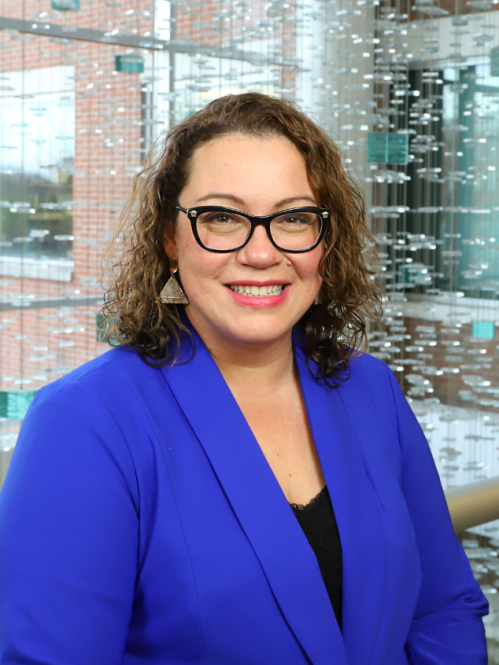Zorimar Rivera-Núñez, PhD, MS

Biography
Zorimar Rivera-Núñez, Ph.D., is an assistant professor in the Department of Biostatistics and Epidemiology at the Rutgers School of Public Health. She is also a member of the Environmental and Occupational Health Sciences Institute. Dr. Rivera-Núñez holds a bachelor’s degree in microbiology and a master’s degree in environmental health sciences from the University of Puerto Rico. She earned her doctoral degree from the University of Michigan. She completed a National Academies post-doctoral fellowship at the United States Environmental Protection Agency, National Center for Environmental Assessment.
Research Interests
Dr. Rivera-Núñez’s research focuses on early-life environmental exposures and their impact on maternal, fetal, and child health, with a particular emphasis on biomarkers that capture windows of heightened susceptibility. Her research program is supported by a strong background in chemistry and analytical training, in which she has studied a variety of chemicals (e.g., metals, zearalenone, disinfection byproducts, PFAS) and their impact on humans. Dr. Rivera-Núñez’s work integrates advanced epidemiologic methods and mechanistic insights into endocrine and placental function to better understand how environmental chemicals influence child growth and development. She has collaborations with multiple pregnancy cohorts and their investigators, including the Rochester-based Understanding Pregnancy Signals and Infant Development (UPSIDE) cohort, the Puerto Rico cohort, and The Infant Development and Environment Study (TIDES). She is an Investigator in the New Jersey Environmental Influences on Child Health Outcomes (ECHO) cohort. Her work is supported by the National Environmental Health Sciences Institute (NIEHS) and the ECHO program.
More recently, she has been applying implementation science to accelerate the translation of environmental health research into interventions and practices. Working in partnership with New Jersey communities such as schools, state agencies, and local organizations, she co-designs and pilots strategies that are tailored to local priorities. This community-engaged approach emphasizes bidirectional learning and capacity building.